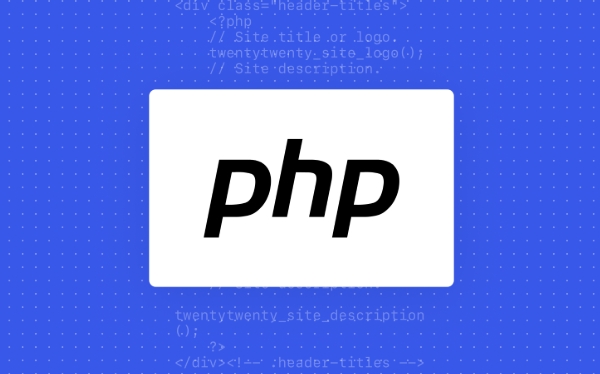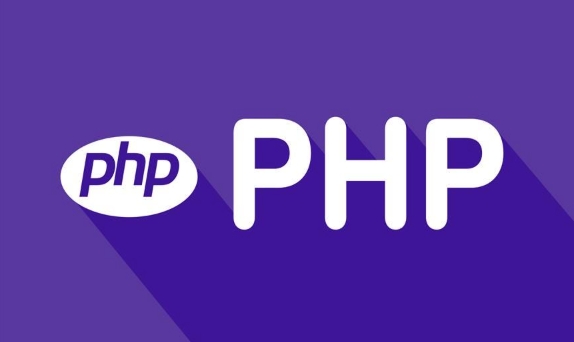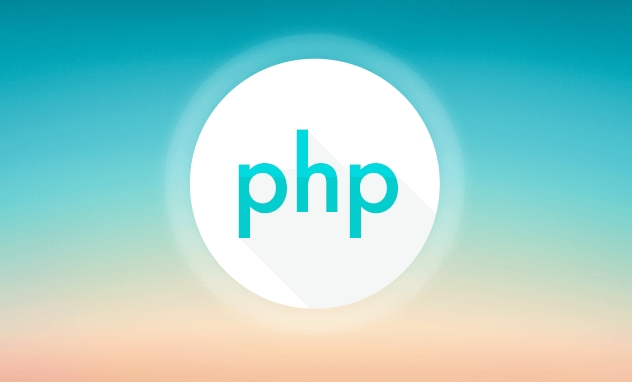建立用于利基应用程序的自定义PHP框架
定制PHP框架适用于特定场景,如高性能需求、遗留系统集成、资源受限环境或合规要求严格的领域;2. 构建时应聚焦核心组件:轻量路由、极简依赖注入、无ORM的数据处理和定制化错误处理;3. 需规避安全疏忽、测试缺失、功能蔓延,并做好内部文档;4. 案例中工业传感器仪表板在低资源、离线、高并发环境下,通过去除ORM、会话、动态路由等开销,实现50ms内响应;5. 自研框架不是替代Laravel,而是为特定需求打造更高效、可控、稳定的解决方案,当场景特殊时,这正是最佳选择。

Building a custom PHP framework for niche applications isn't about reinventing the wheel—it's about crafting the right tool for a very specific job. Off-the-shelf frameworks like Laravel or Symfony are powerful, but they come with overhead and assumptions that don’t always align with specialized use cases. When you're dealing with high-performance requirements, legacy integrations, ultra-lightweight services, or tightly controlled environments, a tailored PHP framework can offer precision, efficiency, and maintainability that general-purpose tools can't match.

Here’s how and why you might build your own PHP framework for a niche scenario—and what to watch out for.
When a Custom Framework Makes Sense
Not every project needs a bespoke framework. But in certain situations, rolling your own is not only justified—it’s strategic.

- Highly specialized domains: Think embedded systems, industrial IoT gateways, or government data processors with strict compliance rules.
- Performance-critical applications: If you're building a real-time analytics engine or a microservice handling 10K requests/sec, even small overhead from a full-stack framework adds up.
- Legacy system integration: When you're wrapping decades-old APIs or databases with non-standard behaviors, a lightweight, custom routing and data layer can be more flexible.
- Minimalist deployment environments: On low-resource servers (like Raspberry Pi clusters), you can’t afford autoloaders, service containers, or ORMs.
In these cases, a custom framework lets you include only what you need—and enforce architectural consistency across the team.
Core Components to Build (And Keep Lean)
You don’t need to replicate Laravel. Focus on the minimal viable structure that supports your niche.

1. Routing with Purpose
Instead of complex route collections, build a lightweight dispatcher:
$routes = [
'GET:/api/status' => 'StatusController@check',
'POST:/data/ingest' => 'IngestController@submit'
];
$path = $_SERVER['REQUEST_URI'];
$method = $_SERVER['REQUEST_METHOD'];
$key = "$method:$path";
if (isset($routes[$key])) {
[$controller, $action] = explode('@', $routes[$key]);
echo (new $controller)->$action();
}This avoids heavy regex parsing and is fast enough for constrained environments.
2. Dependency Injection (Minimalist Style)
Skip full service containers. Use a simple resolver for core services:
class Container {
private $services = [];
public function bind($name, $resolver) {
$this->services[$name] = $resolver;
}
public function get($name) {
return $this->services[$name]($this);
}
}Then inject only what’s needed—like a logging service or database connection.
3. Data Handling Without ORM Bloat
For niche apps, direct PDO with prepared statements often beats Eloquent:
class DataGateway {
private $pdo;
public function __construct(PDO $pdo) {
$this->pdo = $pdo;
}
public function findByID($id) {
$stmt = $this->pdo->prepare("SELECT * FROM sensors WHERE id = ?");
$stmt->execute([$id]);
return $stmt->fetch();
}
}This gives you control, visibility, and speed.
4. Error Handling Tailored to Context
Instead of generic exceptions, define domain-specific errors:
set_exception_handler(function($e) {
if (ENV === 'production') {
error_log("Critical: " . $e->getMessage());
http_response_code(500);
echo json_encode(['error' => 'System unavailable']);
} else {
throw $e; // Re-throw in dev
}
});Avoid the Pitfalls
Building your own framework is empowering—but dangerous if done carelessly.
-
Don’t ignore security: Even if lightweight, include CSRF protection, input sanitization, and secure headers. Use PHP’s built-in functions (
filter_var,htmlspecialchars) religiously. - Don’t skip testing: Write unit tests for routing, controllers, and data access. PHPUnit is lightweight enough to include even in minimal frameworks.
- Avoid framework sprawl: It’s easy to keep adding features. Stick to the scope. If you find yourself writing middleware pipelines or event dispatchers, ask: Does this niche app actually need it?
- Document the conventions: Since you won’t have Laravel’s docs, write clear READMEs on how controllers are structured, how config works, and how to add routes.
Use Case: Industrial Sensor Dashboard
Imagine a PHP app running on a factory floor server, pulling data from 500 sensors every second. Requirements:
- Must respond in
- Runs on a 1GB RAM ARM device
- Talks to a custom binary protocol via sockets
- No internet access (air-gapped)
A Laravel app would struggle here. But a custom framework with:
- No ORM
- No session handling
- Direct socket I/O
- Preloaded config in constants
- Static route map
…can run efficiently and reliably. You trade developer convenience for operational stability—and in this case, that’s the right trade.
Building a custom PHP framework isn’t for every team or every project. But when you’re deep in a niche—where performance, footprint, or integration complexity matter more than rapid feature development—it’s a powerful option.
You’re not replacing Laravel. You’re building something Laravel was never meant to be.
And sometimes, that’s exactly what you need.
以上是建立用于利基应用程序的自定义PHP框架的详细内容。更多信息请关注PHP中文网其他相关文章!

热AI工具

Undress AI Tool
免费脱衣服图片

Undresser.AI Undress
人工智能驱动的应用程序,用于创建逼真的裸体照片

AI Clothes Remover
用于从照片中去除衣服的在线人工智能工具。

Clothoff.io
AI脱衣机

Video Face Swap
使用我们完全免费的人工智能换脸工具轻松在任何视频中换脸!

热门文章

热工具

记事本++7.3.1
好用且免费的代码编辑器

SublimeText3汉化版
中文版,非常好用

禅工作室 13.0.1
功能强大的PHP集成开发环境

Dreamweaver CS6
视觉化网页开发工具

SublimeText3 Mac版
神级代码编辑软件(SublimeText3)
 PHP框架的优缺点比较:选哪个好?
Jun 04, 2024 pm 03:36 PM
PHP框架的优缺点比较:选哪个好?
Jun 04, 2024 pm 03:36 PM
PHP框架的选择取决于项目需求和开发者技能:Laravel:功能丰富,社区活跃,但学习曲线陡峭,性能开销高。CodeIgniter:轻量级,易于扩展,但功能有限,文档较少。Symfony:模块化,社区强大,但复杂,性能问题。ZendFramework:企业级,稳定可靠,但笨重,许可昂贵。Slim:微框架,速度快,但功能有限,学习曲线陡峭。
 在不同开发环境中 PHP 框架的性能差异
Jun 05, 2024 pm 08:57 PM
在不同开发环境中 PHP 框架的性能差异
Jun 05, 2024 pm 08:57 PM
不同开发环境中PHP框架的性能存在差异。开发环境(例如本地Apache服务器)由于本地服务器性能较低和调试工具等因素,导致框架性能较低。相反,生产环境(例如功能齐全的生产服务器)具有更强大的服务器和优化配置,使框架性能显着提高。
 PHP框架与微服务:云原生部署和容器化
Jun 04, 2024 pm 12:48 PM
PHP框架与微服务:云原生部署和容器化
Jun 04, 2024 pm 12:48 PM
PHP框架与微服务相结合的好处:可扩展性:轻松扩展应用程序,添加新功能或处理更多负载。灵活性:微服务独立部署和维护,更容易进行更改和更新。高可用性:一个微服务的故障不影响其他部分,确保更高可用性。实战案例:使用Laravel和Kubernetes部署微服务步骤:创建Laravel项目。定义微服务控制器。创建Dockerfile。创建Kubernetes清单。部署微服务。测试微服务。
 PHP框架与DevOps的集成:自动化和敏捷性的未来
Jun 05, 2024 pm 09:18 PM
PHP框架与DevOps的集成:自动化和敏捷性的未来
Jun 05, 2024 pm 09:18 PM
将PHP框架与DevOps集成可提高效率和敏捷性:自动化繁琐任务,释放人员精力专注于战略任务缩短发布周期,加快上市时间提高代码质量,减少错误增强跨职能团队协作,打破开发和运营孤岛
 PHP框架和人工智能:开发人员指南
Jun 04, 2024 pm 12:47 PM
PHP框架和人工智能:开发人员指南
Jun 04, 2024 pm 12:47 PM
使用PHP框架集成人工智能(AI)以简化AI在Web应用程序中的集成,推荐框架:Laravel:轻量高效,功能强大。CodeIgniter:简单易用,适用于小型应用程序。ZendFramework:企业级框架,功能完善。AI集成方式:机器学习模型:执行特定任务。AIAPI:提供预构建功能。AI库:处理AI任务。
 哪种 PHP 框架提供最全面的扩展库,便于快速开发?
Jun 04, 2024 am 10:45 AM
哪种 PHP 框架提供最全面的扩展库,便于快速开发?
Jun 04, 2024 am 10:45 AM
PHP框架扩展库选择提供了四种框架:Laravel:以其庞大的生态系统和第三方包而著称,提供认证、路由、验证等扩展。Symfony:高度模块化,通过可复用的“Bundle”扩展了功能,涵盖身份验证、表单等领域。CodeIgniter:轻量级且高性能,提供数据库连接、表单验证等实用扩展。ZendFramework:企业级功能强大,拥有身份验证、数据库连接、RESTfulAPI支持等扩展。
 PHP框架在敏捷开发和大型项目中的应用
Jun 04, 2024 pm 01:42 PM
PHP框架在敏捷开发和大型项目中的应用
Jun 04, 2024 pm 01:42 PM
PHP框架在敏捷开发和大型项目中应用广泛,提供敏捷性、可扩展性和安全性等优势。例如,在电子商务网站中,Laravel框架可快速创建原型、处理复杂业务逻辑、确保安全和扩展功能。通过利用预定义的组件和设计模式,PHP框架为开发人员构建可扩展且维护良好的应用程序提供了便利。
 PHP框架和Python框架的比较
Jun 05, 2024 pm 09:09 PM
PHP框架和Python框架的比较
Jun 05, 2024 pm 09:09 PM
PHP和Python框架在语言特性、框架生态和特点上有所不同。PHP主要用于Web开发,易于学习;Python具有广泛的库生态系统。流行的PHP框架包括Laravel、CodeIgniter、Symfony;Python框架包括Django、Flask、Web2py。实战案例中,Laravel使用命令行生成博客模型和视图,而Django使用DjangoAdmin和Python脚本创建博客。







